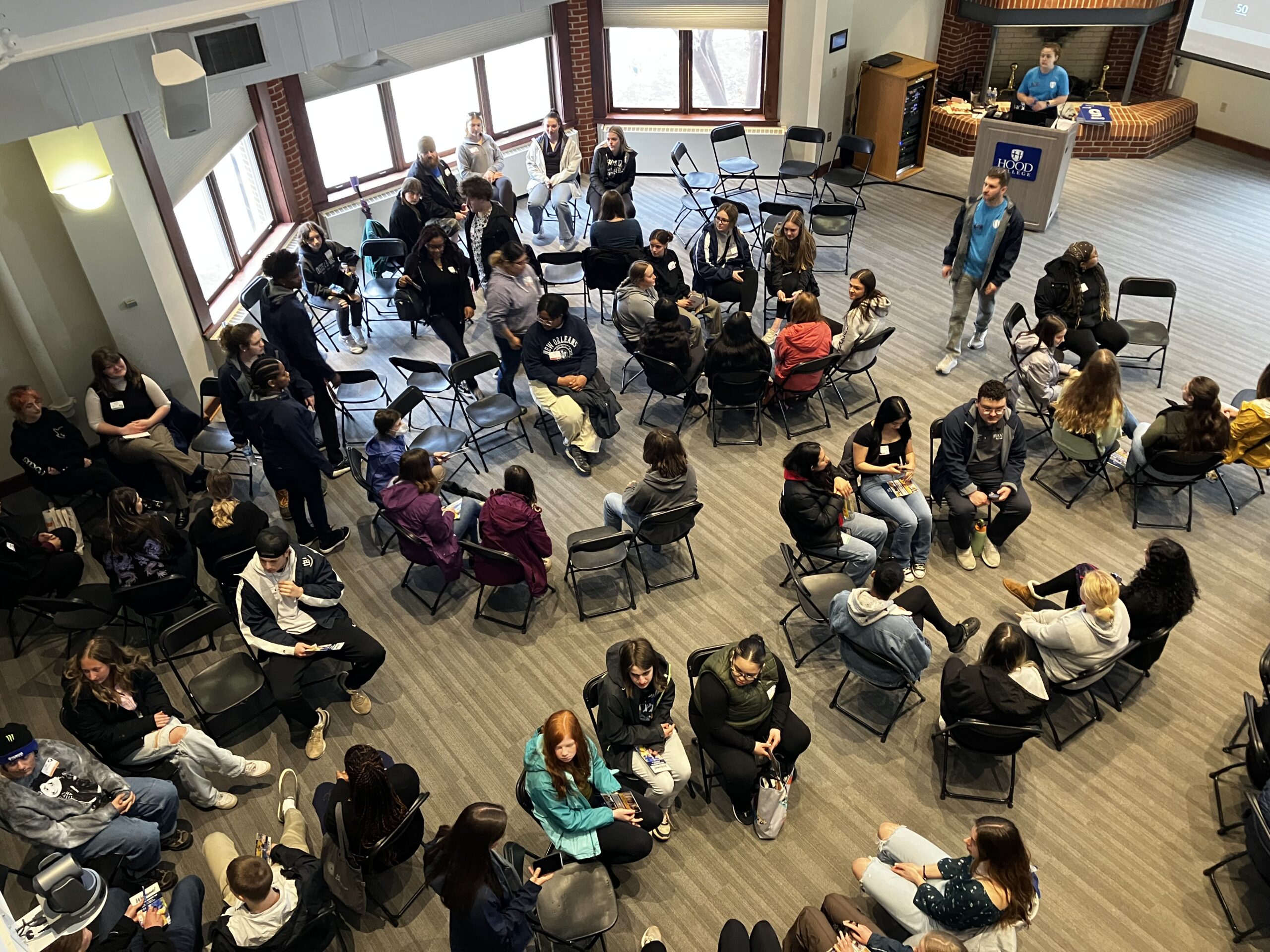
By Gracyn Van Bemmel
FAFSA delays and a phenomenon known as the “birth dearth” are just a few factors that may negatively affect enrollment at Hood for the upcoming academic year.
The Free Application for Federal Student Aid (FAFSA), which is used to determine students’ eligibility for financial aid, was relaunched in December 2023 but has since experienced delays that worry students, parents and college employees.Currently only 183 students have submitted their enrollment deposits, which is a decrease from the 197 students who submitted their deposits for fall of 2023 at this same time in April.
“We have seen some possible implications [that the FAFSA delays may affect enrollment],” Bill Brown, the vice president of enrollment management, said. “There are fewer people that have filled out the FAFSA than have typically up to this time in other years. And if they don’t fill out the FAFSA, they’re likely not to go to college, at least for this year.”
Brown went on to say that the budget deficit that Hood is experiencing this semester was for “multi-pronged reasons.” One of those reasons was a misallocation of financial aid, which was in response to students and families appealing for more money.
The “birth dearth” refers to a decrease in child-bearing that is impacting the number of students that are graduating from high school and progressing toward higher education. It is predicted that in 2026, the number of college-aged students will drop almost 15% in five years.
According to Elizabeth Gomer, who oversees visits and events, this concept was really introduced to college campuses in 2017. “We anticipated it that cliff in 2026, and that’s what we would be looking at, and how colleges as a whole can be prepared for this and survive it,” she said.
Being part of any college’s admissions team consists of constantly analyzing demographic trends such as this, as well as analyzing other, similar colleges to see how they are reacting to the changing demographics and challenges, such as the Covid-19 pandemic and the FAFSA delays. Additionally, they also heavily rely on feedback from the students and faculty that attend their campus, as well as the prospective students who are thinking about attending their campus.
Hood’s admissions team is always working to ensure that they’re one step ahead of the curve. They’re always trying to give prospective students and families the best experience when they visit Hood, and the way they do that, according to Brown, is that they recruit one person at a time. “It’s not about selling anything, it’s about asking questions,” he said.
According to Payton Mills, the events specialist of admissions, the reason that the Blazer Ambassadors remained in the library even after the rest of the admissions team was relocated back to the Admissions House was due to current student and prospective student and family feedback.
Prospective students and their families felt that the library was a more welcoming space to check in for tours and that the Admissions House felt like a “funeral home.”
The admissions team is also constantly adjusting the organization and format of admissions events and visits based on student and family feedback.
“We’re meeting students where we are with the program we’re offering,” Mills said. “It would be very easy to fall into a pattern with our visits and events and do what we’ve always done because that was successful. And it’s not to say that those things aren’t great—they were successful—but students need different things.”
An example of a recent change that was made is the tour route that Blazer Ambassadors follow when giving tours. According to Mills, the original route focused on academic, but the admissions team noticed and we told by experts that the hierarchy of needs had shifted to other college-related things besides academics, such as where the students were going to sleep, what the food was like, how the college will take care of the students and if the students will be safe.
Now, the new tour route consists of showing residence life first and academics lasts.
Regardless of the event, whether it’s a Discover Hood Day or Accepted Students Day or just a regular campus visit, there is one thing that has never changed: emphasizing the importance of one-on-one interactions.
At events, prospective students and families get the opportunity to meet their admissions counselors and the admissions team, exchange emails and phone numbers, talk to the president of the college and current students.
“What we say is: it’s not what you say, it’s how you make someone feel,” Gomer said.



Be the first to comment